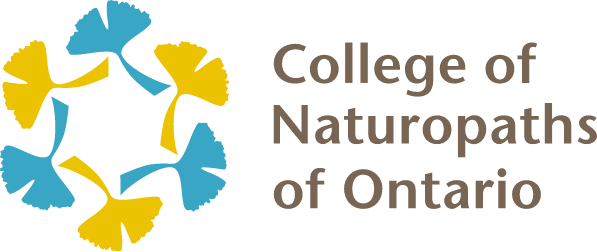Operational Programs of the College
In-field Volunteer Opportunities within Operational Programs
Our diverse operational programs offer both registrants and members of the public a wide range of opportunities to contribute their knowledge, skill and time towards our mission of protecting the public and supporting safe practice.
Each operational program has a unique role and requires varying time commitments and proficiencies. Short descriptions with approximate time commitments can be found below:
Operational Programs
| Examiner |
| An Examiner is responsible for evaluating the clinical/practical competency of all assigned examination candidates in accordance with the criteria established by the College. Reviews the College’s examiner tools and examiner reference documents prior to each examination session. Declares any conflict of interest that may exist with any assigned examinations candidate and ensures all grading forms are completed and submitted within the specified time frame on examination days. Examiners comply with all examiner protocol requirements as outlined by the College, including attending all training sessions (volunteer orientation and examiner specific training). Maintain confidentiality of all examination material and content. Additional skills recommended: Ability to conduct fair and objective evaluations. For those involved in the Clinical (Practical) Examinations, must have a strong working knowledge of Acupuncture, Physical Examination/Instrumentation, and/or Manipulation. For those involved in the Intravenous Infusion Therapy (IVIT), must have a strong working knowledge of sterile compounding for IVIT and/or peripheral IV access and administration. Time Commitment: Examinations are anticipated to run from 8 a.m. – 5 p.m. on Sundays. Total of three examination days per year. |
| Inspector |
| Inspectors are objective observers responsible for collecting information about the IVIT premises. Their role is to review the premises and observe the relevant procedures in order to determine whether or not the Inspection Program Requirements are being met. Inspectors are not responsible for making the decision as to the outcome of the inspection of the premises. Additional skills recommended: Inspectors must have the following skills: – a good understanding of the College’s standards of practice and the Inspection Program Requirements, – excellent oral and written communication skills, – the ability to separate the interests of the profession from the interests of the public and place a priority on the latter, and – the ability to observe a premise and gather information fairly and objectively. Time Commitment: Inspections are completed throughout the year, scheduled at times that are mutually convenient for the Inspector and the assigned Registrant(s). Each inspection may take up to a full day. |
| Item Writer |
| Item writers are responsible for developing psychometrically-sound examination question items and cases, which adhere to the College blueprints for the Ontario Clinical Sciences and Ontario Biomedical examinations, College style guide, exam study reference guides and item writing guide, and participating in item writer peer review session to revise and strengthen questions prior to review by the Exam Committee (Entry-to-Practise). Additional skills recommended: Strong working knowledge of the scope of practise of naturopathy in Ontario. Strong communication skills, both written and oral. Ability to produce written content within set deadlines. Ability to work independently and collaboratively. Experience in writing items for high stakes examinations is an asset. Time Commitment: This committee meets approximately four full days a year of meetings in addition to developing self-directed new examination questions. |
| Peer and Practice Assessor |
| Peer and practice assessors are responsible for the fair and objective evaluation of Registrants who are randomly selected to undergo a peer and practice assessment in accordance with the criteria established by the Quality Assurance (“QA”) Committee, coordinating and carrying out scheduled virtual peer and practice assessments with assigned Registrants, preparing a written report following the assessment, describing key observations and findings, providing reports to the Professional Practice Department in a timely manner, and attending all training sessions and any additional meetings as required. Additional skills recommended: Commitment to conducting fair, objective, bias-free assessment of a Registrant’s clinical knowledge and understanding of the standards of the profession. Strong working knowledge of the scope of practice of naturopathy in Ontario and the College’s regulations, standards of practice, guidelines, and policies. Strong communication skills, both written and oral. Ability to work independently and collaboratively. Time Commitment: Peer and practice assessments are typically scheduled between July and December each year. Assessors are expected to complete approximately 10-15 assessments during this period. Peer assessors schedule the assessments at times that are mutually convenient for them and the assigned Registrants. |
| PLAR Assessor |
| PLAR assessors are responsible for the fair and objective evaluation of individuals who have applied to have their education and experience assessed for substantial equivalency to that of a graduate from a Council on Naturopathic Medical Education program (CNME), through the College of Naturopaths of Ontario (the College)’s Prior Learning Assessment and Recognition (PLAR) Program. Assessors, following scheduled training, will carry out PLAR assessments, both paper-based and demonstration-based; provide findings and recommendations to the Registration Department for review by the PLAR Committee. Additional skills recommended: Commitment to conduct fair, objective, bias-free assessments of a PLAR applicant’s education, experience and demonstrated knowledge and skill. Strong written and oral communication skills, and critical thinking skills. Ability to work both independently and collaboratively. Time Commitment: PLAR assessments are scheduled on an as-needed basis, depending on a PLAR applicant’s eligibility for assessment. Paper-based assessments are conducted remotely, within a timeframe set by the College with the assessor. Demonstration based assessments are conducted in-person, over the course of one business day, as scheduled by the College. |
